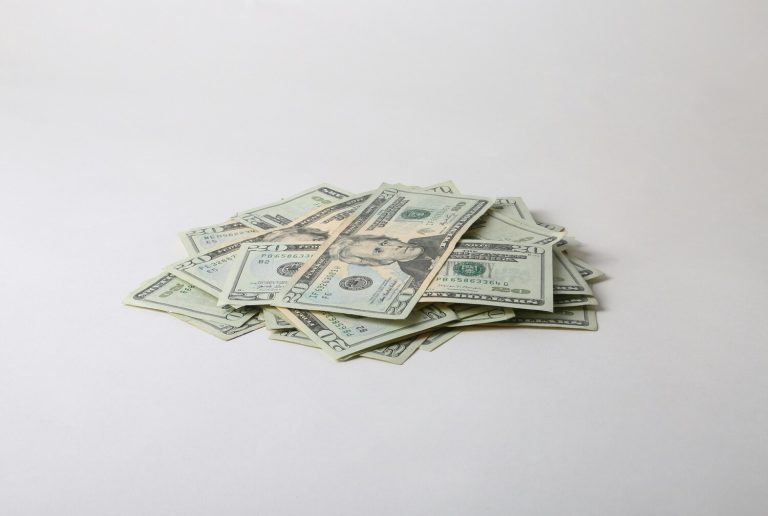You work hard. You wait for payday. And then—poof—the money’s gone. If it feels like your paycheck disappears before you can even enjoy it, you’re not alone. Rent, bills, groceries, and random charges eat away at your hard-earned cash. But here’s the good news: holding onto more of that paycheck doesn’t have to involve dramatic lifestyle changes or extreme budgeting.
In fact, small, consistent tweaks—some of which you can implement today—can help you keep more money in your pocket without stress, spreadsheets, or sacrifice. Here are 13 no-sweat ways to stretch your paycheck further, with methods real people are using right now to quietly boost their bank balance.
1. Automate Your Savings Before You Touch It
One of the simplest and most powerful habits: set up an automatic transfer to savings the same day your paycheck hits. Even $25 or $50 per check adds up over time.
The key is automation. When you don’t see the money in your checking account, you won’t miss it or spend it. Consider setting up two savings accounts: one for emergencies and one for goals. This mental separation helps you save with intention while creating a buffer for unexpected expenses. Over time, this “pay yourself first” method builds savings with almost no effort.
2. Use a Separate Account for Spending Money
Want to stop overspending? Give yourself boundaries. Set up a checking account exclusively for discretionary spending—think dining out, entertainment, or shopping. Transfer a fixed amount into it each payday, and once it’s gone, it’s gone. No more dipping into rent or bill money for an impulse buy.
This tactic gives you permission to spend within reason while protecting your core financial responsibilities. You’ll naturally get more mindful about what’s worth your limited fun-money funds.
3. Cancel Subscriptions You Forgot You Had
A common paycheck drainer? Subscriptions you forgot you signed up for. Streaming services, apps, subscription boxes, cloud storage plans, and even forgotten gym memberships can quietly siphon $10 to $50 each month. Review your bank or credit card statements and highlight recurring charges. There are also apps like Rocket Money that can help you identify and cancel unused subscriptions quickly. Recovering even $30–$70 monthly here is like giving yourself a raise.
4. Round Up Purchases to Build Micro-Savings
Apps like Acorns or Qapital round up every purchase to the nearest dollar and deposit the difference into a savings or investment account. You’ll barely notice the change, but your savings account will. Over the course of a year, this spare-change saving tactic can quietly add hundreds to your balance. Best of all, it happens in the background while you continue living your life.
5. Eat Out Less, But Smarter
No, you don’t have to stop eating out altogether. But cutting back even slightly or rethinking how you dine can keep more money in your wallet. Opt for lunch specials over dinner prices, skip drinks and desserts, or order takeout to avoid restaurant markups and tipping. Keep dining out to a weekly treat rather than a daily habit. You still enjoy meals out, but you do it intentionally and affordably. Reclaiming just $100 a month here is the financial equivalent of an extra paycheck every year.
6. Split Bills with Roommates or Family
Shared expenses reduce individual financial pressure. If you’re living alone, consider splitting rent or utilities with a trusted roommate, partner, or even a relative. It’s a fast track to reclaiming hundreds each month. Not ready for shared living? You can still split Netflix, Spotify Family, or Amazon Prime costs with trusted friends or family to reduce monthly fees without giving up services.
7. Switch to a Credit Card With Cash-Back Rewards
If you’re already using a debit card or credit card for everyday purchases, make sure it’s giving something back. Many no-annual-fee credit cards offer 1–5% cash back on groceries, gas, restaurants, and online purchases. That’s money you’re already spending, so you may as well be earning on it. Use rewards to cover future expenses, gift cards, or even statement credits. Just make sure to pay the balance in full each month to avoid interest charges.
8. Shop Groceries with a List and Stick to It
Grocery stores are designed to tempt you. That’s why shopping with a list and sticking to it can save $20–$50 or more per trip. Plan meals ahead of time, check what you already have at home, and resist last-minute grabs. Apps like Flipp or Basket help you compare prices across stores, find local discounts, and stay within your food budget. Meal planning combined with list shopping means fewer food spoils, less dining out, and more money saved.
9. Use Cash-Only Days to Curb Impulse Buys
Designate a couple of days each week as “cash-only” or “no-spend” days. When you can’t tap your card, you become more selective with your purchases. This method also helps you delay gratification. Want that impulse snack or clearance item? Wait until your spend-free day ends. Odds are you’ll lose interest or realize you didn’t need it. These little pockets of restraint train your habits over time, and your bank balance reflects the change.
10. Review and Renegotiate Your Monthly Bills
Your phone, internet, and insurance bills are not set in stone. In fact, most providers raise prices over time, counting on you not to notice. Once or twice a year, call your providers to request discounts, downgrade services, or negotiate better rates. Mention competitive offers from other companies. They often have retention departments trained to cut your bill on the spot. Don’t want to haggle? Services like Billshark or Trim will do it for you—for a portion of the savings they earn.
11. Choose Generic Brands Without Sacrificing Quality
Switching from name-brand to store-brand products can slash grocery bills by 20–30% with little difference in quality. Everything from pantry staples to cleaning products and even over-the-counter medications has a cheaper generic version that works just as well. You pay for packaging, not performance, with brand names. Saving $10–$20 per grocery trip with this strategy adds up fast, and you’ll barely notice the change in your pantry.
12. Delay Big Purchases for 30 Days
Impulse spending is one of the biggest enemies of saving money after payday. Try this: the next time you want something over $50, wait 30 days. If you still want it after that and can afford it, go ahead. But most of the time, the excitement fades, and you keep your money instead of buying something that ends up unused or forgotten. This tactic protects your long-term goals while also reinforcing thoughtful spending habits.
13. Track Every Dollar (Even the Small Ones)
You don’t need to become a spreadsheet master, but writing down every dollar you spend, even just for one week, can be an eye-opener. Use apps like Mint, YNAB (You Need A Budget), or a simple notebook. When you see how small expenses add up, you become more aware—and more empowered. That $4 coffee or $2 app download doesn’t feel like much until you realize you’re spending $300/month in unplanned splurges. Awareness equals control.
Big Paycheck Wins Come from Small Daily Moves
You don’t need a side hustle, a six-figure salary, or extreme discipline to keep more money after payday. You just need a few intentional habits—habits that work in the background and add up over time.
By automating savings, trimming waste, and making smarter choices in your daily life, you’ll gradually see your paycheck last longer and your stress shrink. These no-sweat methods are simple, but they’re powerful. Most importantly, they prove that a better financial life isn’t about deprivation. It’s about direction.
Which of these paycheck-saving tricks have worked for you, or which ones are you excited to try next?
Read More:
14 Eye‑Opening Stats About Saving Money That Could Change Your Paycheck
32 Reasons to Be Frugal Besides Saving Money
Read the full article here









